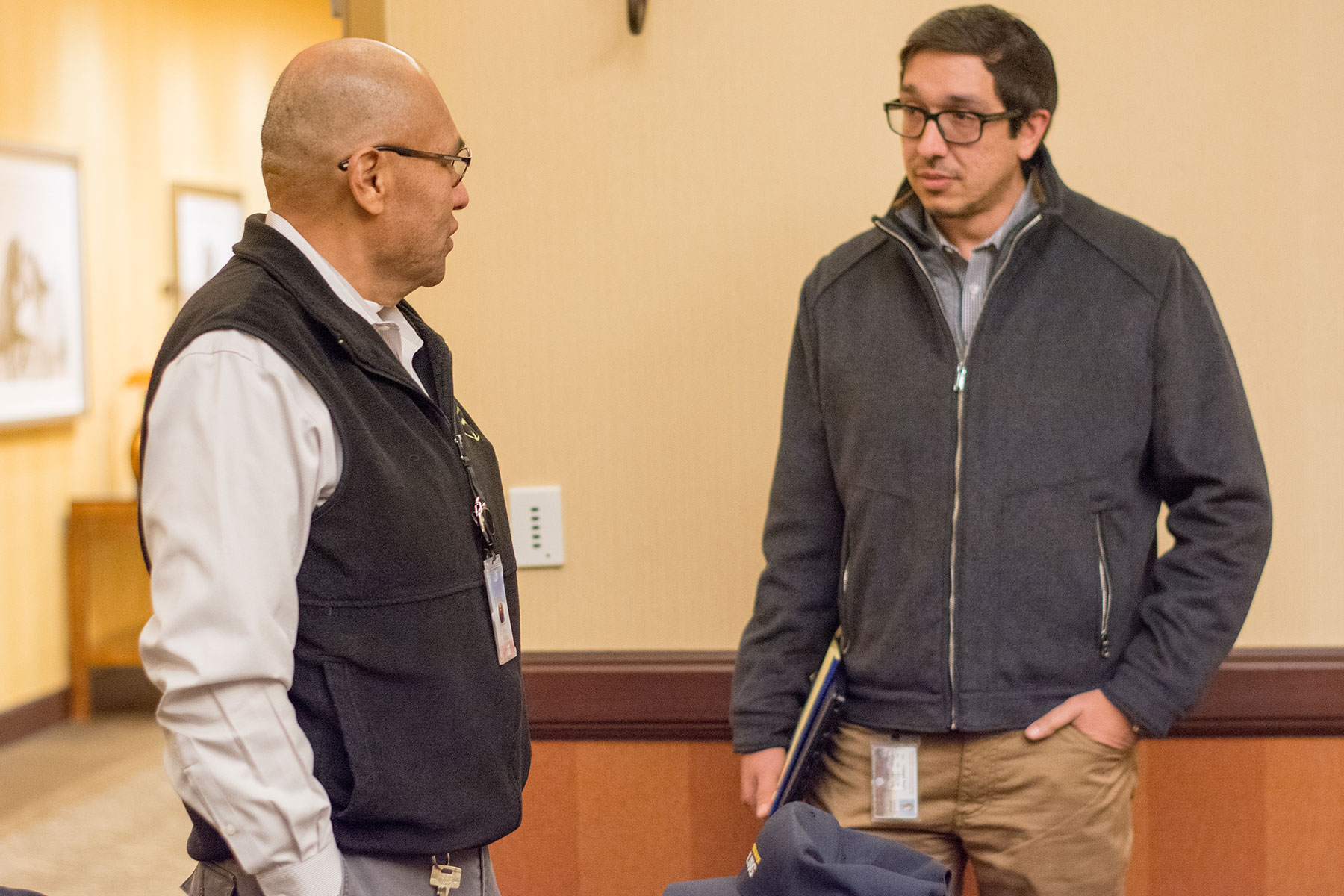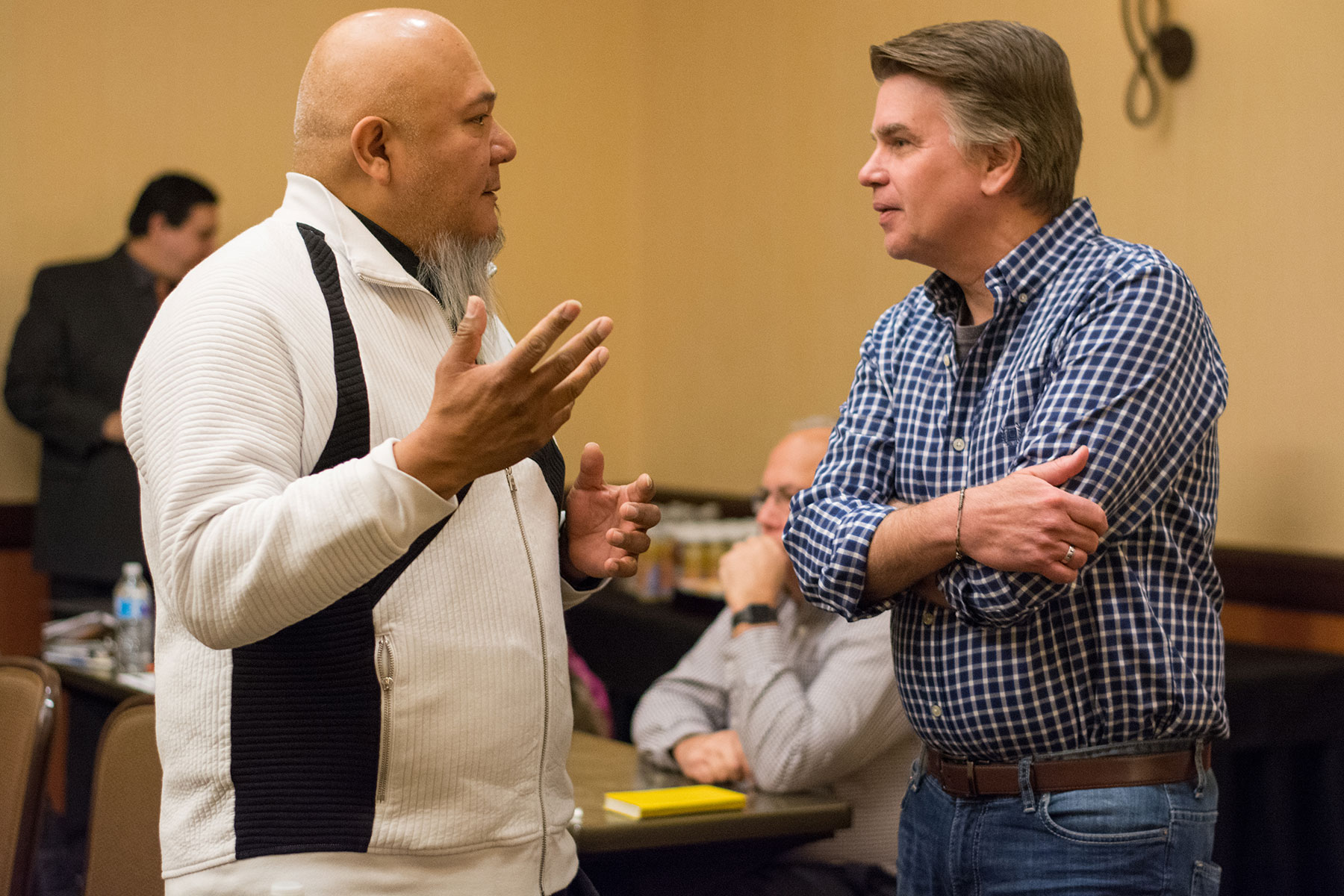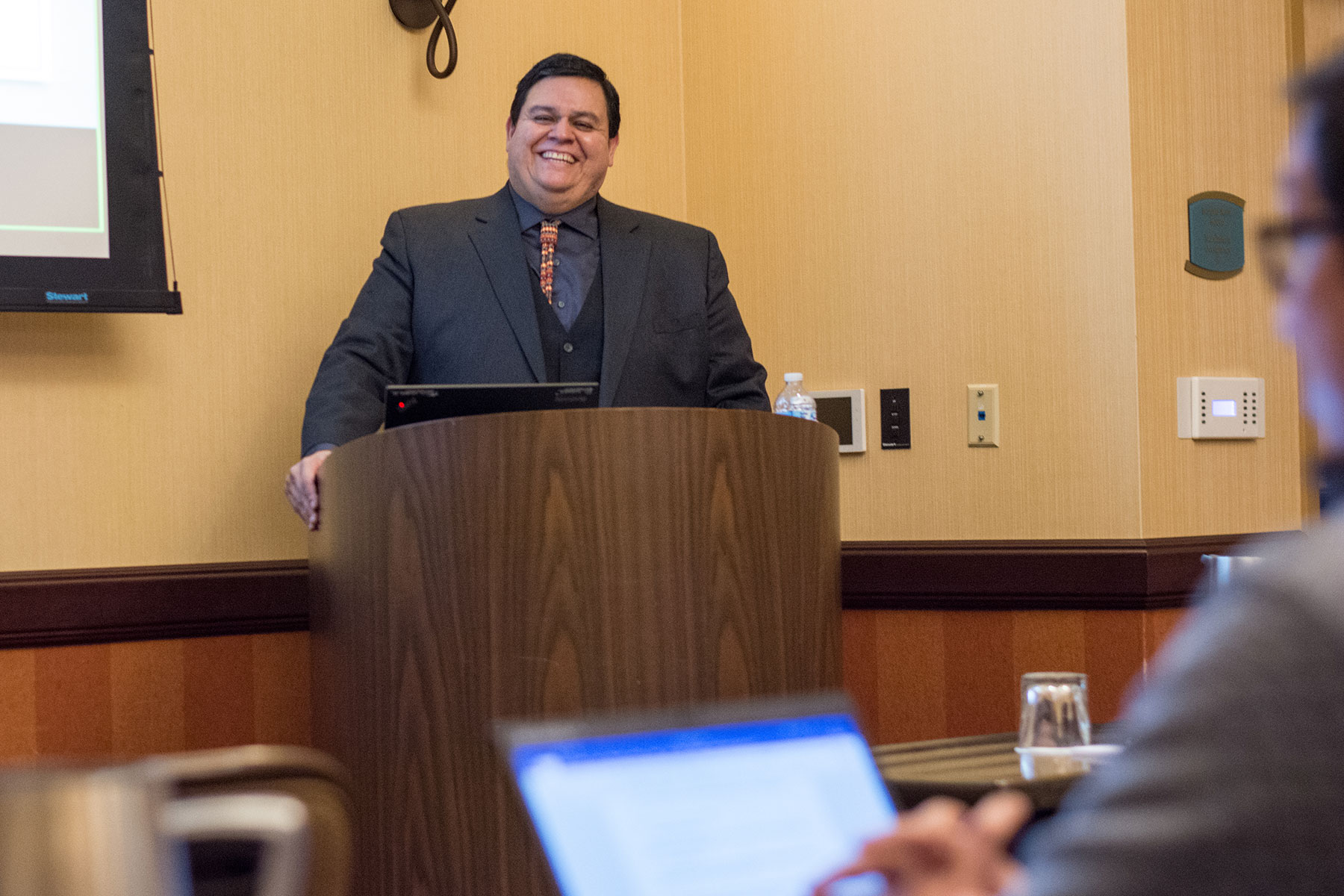The Southern Ute Tribal Council hosted two tribal member informational meetings on Thursday, Jan. 24 in the Bonny Kent Rm. of the Sky Ute Casino Resort, this included a morning and an evening session in order to accommodate various schedules.
Councilman Adam Red led the presentation on the Tribal Environmental Review Policy (TERP) and Leasing Code. The meetings were open to all tribal members and were available for viewing online through the Web-Ex Event website. The presentation was hosted in order to review and receive comments from the membership. Dialogue was encouraged as TERP is now in the revision stage of the proposal.
The proposed Residential, Business and Agricultural Leasing Code was established as a process for tribal approvals of business, agricultural and residential leases that will bypass the approval of the Secretary, but only if the lease is executed under the code and in accordance with the “Helping Expedite and Advance Responsible Tribal Home Ownership” otherwise known as HEARTH.
The HEARTH act was signed into law back in 2012 by President Obama. It was added as an amendment to the Indian Long-Term Leasing Act of 1955. This act will allow tribes to adopt leasing codes so they can approve their own leases. Before HEARTH, tribes had to receive approval from the United States for each and every submitted lease because they did not have authority under federal law to approve them. The idea of the act was originally created to significantly reduce the time that it takes for the Bureau of Indian Affairs (BIA) to approve leases in Indian Country by facilitating economic developments through investments in tribal communities for homes and small businesses.
The HEARTH act is not intended to relieve the United States or the BIA of their trust responsibility to the Tribe and it will not include leases for exploration, development or the extraction of mineral resources.
In 2017, the Southern Ute Tribal Council prioritized the development of the Leasing Code. “Whether it is TERP, SMART or HEARTH we need this,” Councilman Adam Red stated. “It is our reservation, so we should be able to control it.”
The leasing code will apply to anyone leasing on tribal land. “Tribal land is defined in the code as land owned in trust by the U.S. for the benefit of the Tribe,” Red explained.
This code will not only free up BIA resources, but it will allow for fewer delays and give the Tribe a streamlined process to create an improved business environment. “This also give us the opportunity for customizing our own process,” Red adds.
Tribal staff will still be available to help tribal members who begin the leasing process, but the main difference with the proposed code will be that tribal staff will not submit the leases to the BIA for approval. Instead they will be submitted to Tribal Council, and for short-term leases, the Housing Department Director will handle those approvals. According to the presentation, “this means that leases will be processed more efficiently and in many cases much faster— potential lessees will get better transparency and notice of when approving authorities will be considering the lease.”
Moving on from HEARTH, Councilman Red introduced the proposed Tribal Environmental Review Policy or TERP for short. TERP will be a tribal process that gives Tribal Council a way to analyze environmental and cultural impacts of proposed projects before deciding whether to approve. The presentation described TERP as, “essentially a tribal version of NEPA and NHPA all rolled into one process.”
“If the Tribe wants to take on more federal duties in the future—the Tribe needs to have its own policy for reviewing cultural and environmental impacts,” Red explained. The policy will help the BIA to allow tribes to take on normal BIA responsibilities like leasing under HEARTH, but only if the tribe has an environmental review process in the leasing program.
For now, TERP would be used in environmental analysis for residential, business and agricultural leases. Potentially the policy could be used to approve future energy uses. The presentation stated that, “the policy applies to activities on tribal trust land requiring tribal approval in place of federal approval.”
TERP is just a process, it does not tell the Tribe what to do. The results of the TERP process do not require a project to move forward nor does it prevent a project from advancing.
This proposed policy will be under tribal control, it is a process that can be tailored to the Tribe’s interests and values. Under TERP, projects that begin on tribal land can follow the Tribe’s timeline, meaning they will take less time, with the potential to be approved more quickly.
Through the policy, cultural resource staff will be able to get a closer look and review a joint clearance letter from the Cultural Preservation Department and the Department of Natural Resources. Regularly the BIA’s Regional Archaeologist is responsible for reviewing and for the signing off of the clearance letters and there is only one Regional Archeologist that serves all the tribes in the Southwest Region.
Narrower definitions of “public” will fall under TERP meaning that only the people directly impacted, like tribal members and their neighbors, can comment on proposed projects. “The policy will also protect the Tribe from changes in federal resources like shutdowns, low staffing levels and or funding shortages,” Red emphasized.
Through collaboration with Tribal Council, the Executive Office, the Cultural Preservation Department, the Department of Natural Resources, the Growth Fund, the Environmental Programs Division, the Planning Department and Tribal attorneys — TERP was developed.
Tribal Members who would still like the opportunity to comment on TERP and the Leasing Code as well as the supporting tribal policies can request the documents from Southern Ute Tribal Council Communications Specialist Lindsay J. Box. Comments will be accepted through Feb. 1. Comments can also be sent to the Southern Ute Legal Department.






